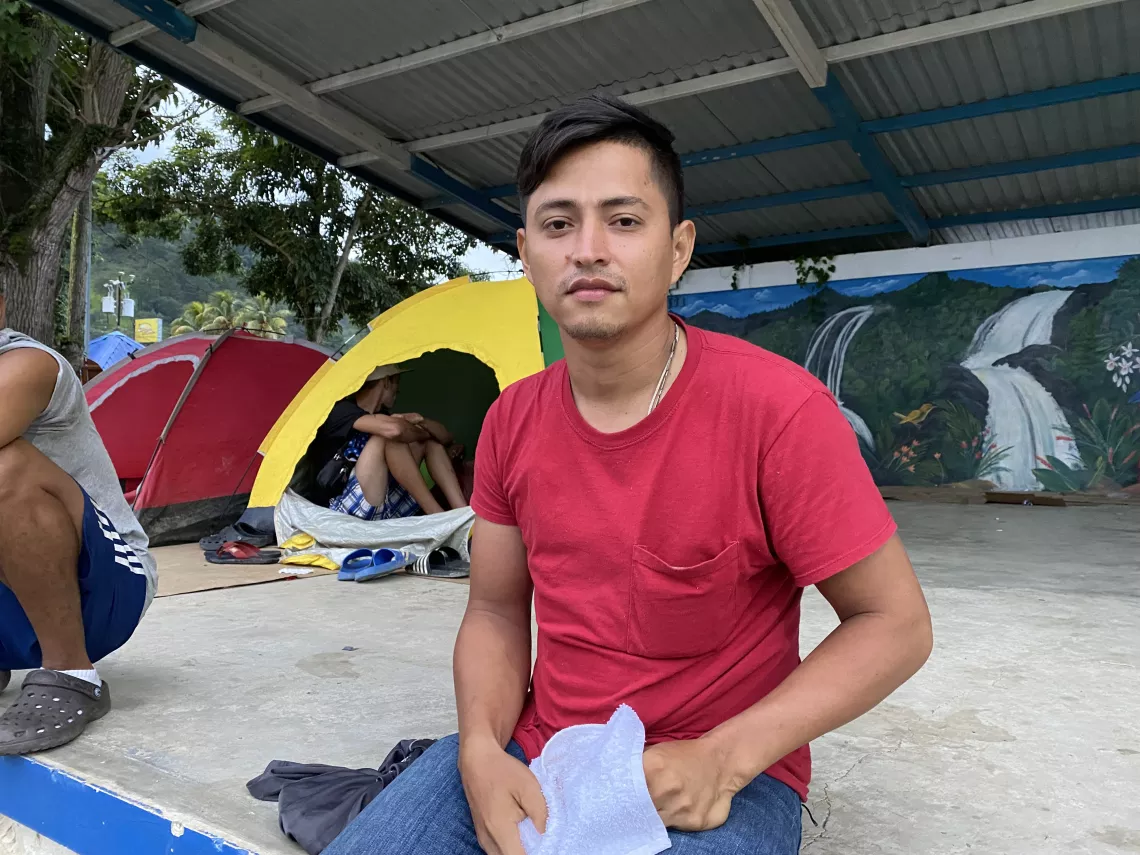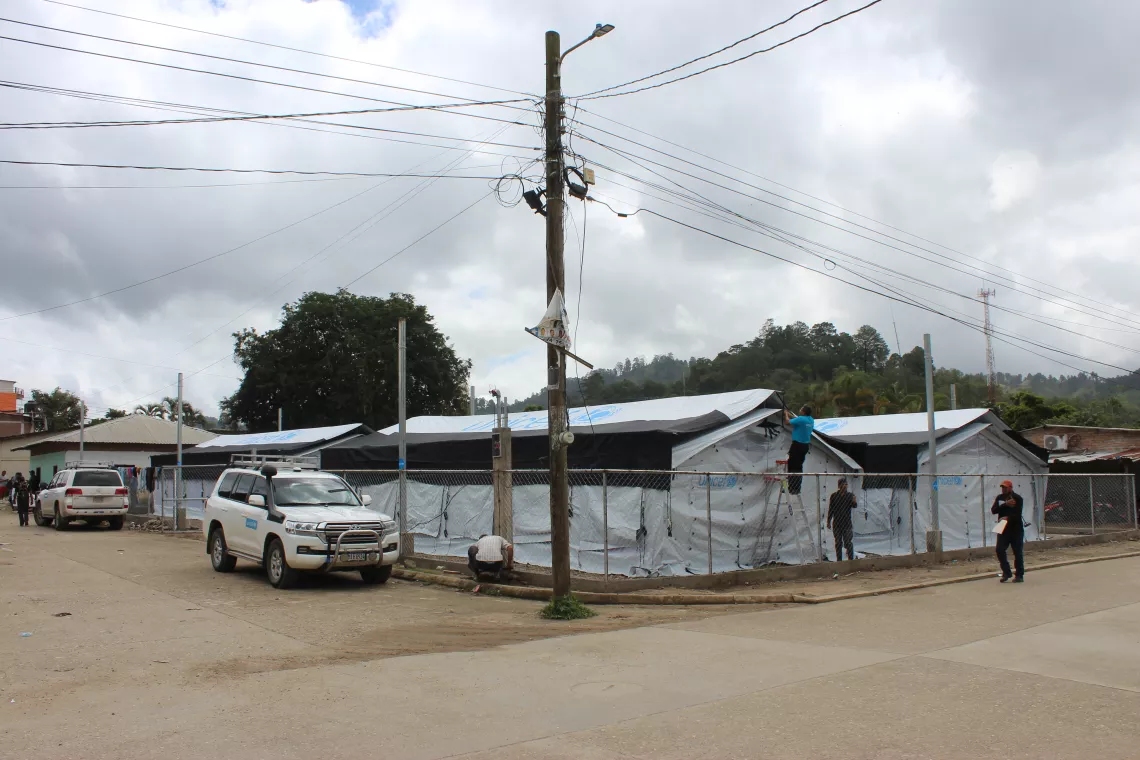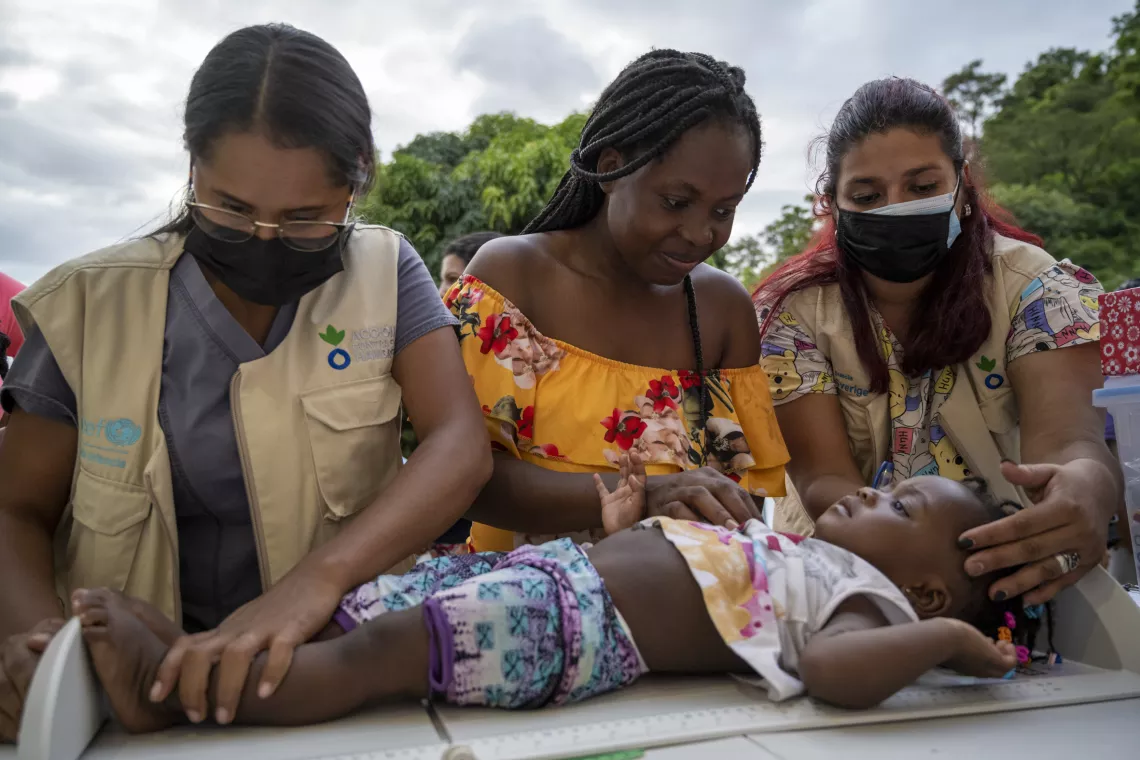The LIFE Consortium continues with emergency response activities for people in human mobility
Honduras continues to be a transit territory for temporary migrants coming from other continents and/or mainly from South America or the Caribbean

Honduras continues to be a transit territory for temporary migrants coming from other continents and/or mainly from South America or the Caribbean, who decide to venture on a migratory route that exposes them to risks throughout their journey to the North. According to the National Migration Institute (NMI), between January 1 and September 28, 2022, 109,584 persons entered Honduras irregularly.

Joan, 18 years old, recalls how difficult it was to leave her mother alone, who is his only family member who supports him. Economic difficulties motivated him to take the road to the North. "I left my mother behind, it was not easy at all but in Venezuela the situation is difficult, we have many economic problems and that is why I made the decision to improve myself and travel with the hope of supporting my mother financially"

According to NMI statistics, of the total number of migrants in irregular transit during the period who have registered at the migration offices, 57% are men, 24% women and 18% boys and girls.

Keymer, who travels with his partner and his daughter, recounts his experience on the migratory route.
"It's hell, it's not easy at all, especially in the Darien jungle where the journey takes more than two full days of walking. I don't recommend that people travel that route, because it's dangerous especially for someone traveling with the family. extortion is a business in that area, they take a lot of money from us."
In response, the LIFE-Honduras Consortium made up of Action Against Hunger, the United Nations Children's Fund (UNICEF) Pure Water for the World, the Chilld Fund, the Adventist Development and Relief Agency (ADRA) and the Fundación Alleviation of Suffering (FAS) and financed by the Office of Population, Refugees and Migration (PRM) of the Department of State, continues with emergency response activities in the Temporary Rest Centers where services are provided in: child protection, education, water, hygiene, sanitation, nutrition and health to families with children in transit through Honduras.


Keymer says “These rest centers are ideal for us, we have received support from all the well-trained health personnel and they have given us food. For us as a family the journey is very tiring, we do not have enough money to pay for a room to sleep, these shelters allow us to rest in a safe place and not sleep on the streets.”
Between August and October, LIFE-Honduras Consortium fed and housed more than 6,000 people at the Temporary Rest Centers in Danlí and Trojes. With the opening of the Temporary Rest Center for Migrant Families in Trojes, we have ensured that 70 people a day do not spend the night on the street, and have access to food in the morning and in the afternoon. The total number of people we have served in one way or another in the two municipalities exceeds 6,000 people, almost 230 people a day.

More than 400 children under 5 years of age have been evaluated, in order to derive cases of Moderate and Severe Acute Malnutrition, depending on the severity we are giving nutritional supplements and nutritional counseling to their caregivers. We also screen pregnant and lactating women, and in all cases they are given shakes of fortified protein-based drinks and given a talk on nutrition, breastfeeding, and danger signs.

To supply drinking water to the entire population, five hydration points have been set up. At this point, it has gone from giving 300 bottles of water to 600 a day, reaching more than 7,000 people in the last month. The LIFE Consortium has also worked providing water in the Danlí Temporary Rest Centers, reaching more than 3,000 people in this municipality .
The LIFE Honduras Consortium continues to provide personal hygiene kits in the Temporary Rest Centers of Choluteca, Danlí and Trojes to more than 2,000 people in September. Portable latrines have also been installed in the (TRC) in order to improve hygiene and sanitation conditions.





